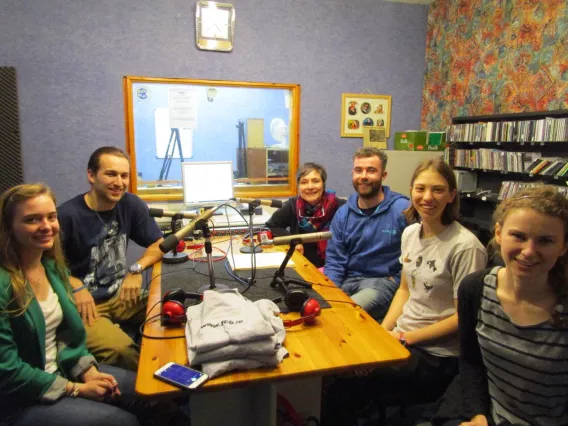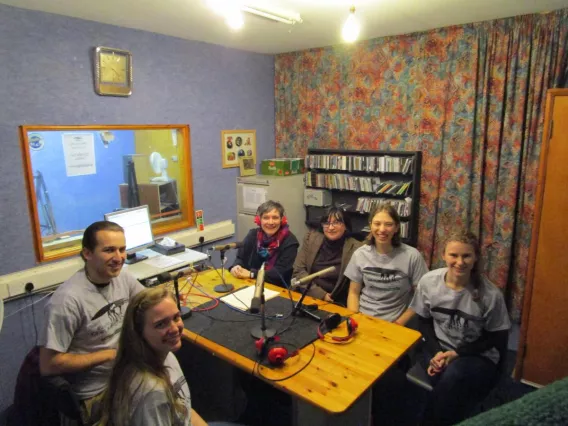Project
This project examines the experiences of English immigrants in Ireland and forms one part of a wider research project examining Irish emigration, immigration and identity. Relations between the English and Irish are a bit like family cousins: close enough to understand each other; but far enough apart to see what makes them different. By collecting and analyzing English perceptions of Irishness, we are able to develop an 'outsider understanding' of Irishness. We can then match this with 'insider Irish' views and perceptions. We want to see if there is a shared understanding of everyday values and concerns between 'insiders' and 'outsiders'
Although there is a great deal written about Irish immigrant experiences outside Ireland, there are no studies of the English in Ireland. There is a lot of talk about new migration into Ireland and the development of a more inclusive and diverse state. But still we have never thought to look at the experiences of this long-established immigrant group. A better understanding of Irish immigration will help us to forsee and avoid some kinds of immigration difficulties in Ireland and enable us to plan better policies for the future.
Researchers in this project collaborate with the Migrant Hub, Limerick and the Intercultural and Diversity Education Centre (IDEC), Ennis. Both of these associations represent new migrant groups in Ireland, who are interested in developing a much clearer understanding of integration and interculturalism in Ireland. The research is conducted with volunteer recruits who affiliate with an English and/or British identity. We know of no English immigrant groups in Ireland - but would be delighted to hear from any that exist.
This project has been passed by the UL Ethics Committee and follows all ethical protocols associated with participant research. Evaluations of the project from participants are carried out twice a year. Former UL Practicum and Study Abroad students on the project have very much enjoyed this perspective on Irish culture. participant interviewees report that they appreciate the opportunity to talk about their experiences in Ireland
Learning
Practicum activities for this project include: using existing primary and secondary sources to develop your understanding of banal nationalism and identity politics; carrying out relevant literature reviews and report writing; facilitating focus groups and interviewing; interview transcription and coding; thematic data analysis; project planning; collaboration and team work.
The empirical work for this project offers you an opportunity to engage first hand with one of the key issues facing contemporary Ireland and enables you to develop a variety of qualitative and applied research skills in a real-life research project. This UL Practicum offers an experiential learning context in which to develop the UL Graduate Attributes
The academic project leader for this Practicum is Dr Maura Adshead, Room F1027, Foundation Building. Email: Maura.Adshead@ul.ie Researchers in this project collaborate with Migrant Hub, Limerick and the Intercultural and Diversity Education Centre (IDEC), Ennis.
All UL Practicum modules are assessed in two parts, comprising 50% each: Academic Assessment - one end of term paper combining your practical knowledge of this project with the academic perspective on the topic. Practicum Assessment - your personal input into this project will be negotiated with you and the team. Following this plan, you will be assessed on your capacity to deliver the project tasks for which you are responsible.
Research
The literature on nationality and identity shows that Irish identity is based on a set of attributes: both relational (to locale, to social networks, and to commonly held majoritarian views and attitudes); and physical (to be Irish is to be white, to be Catholic, to be rural, Irish speaking etc – the more you have, the more Irish you are). This form of identity is reflected in a holistic – as opposed to civic – form of nationalism; that is, a form of banal nationalism based on unconscious notions of shared social identity, instead of around shared political values, rights and procedures. This research attempts to empirically unpack Irish social identity, with a view to examining its significance for Irish political culture and politics. The English in Ireland represent a significant minority who, because of their close socio-political and cultural connections, hold an unusual capacity to integrate into Irish culture, whilst simultaneously being able to distinguish what it is that disassociates them from it. This gives us a unique insight and capacity to explain the nuances of what it means to ‘be Irish’.
In most parts of the world, holistic nationalism has been anti-democratic. Ireland’s unusual demographic, aided by a split with the Northern population, enabled this form of nationalism to grow up alongside and within a democratic system of governance. In a contemporary and more diverse Ireland, this form of nationalism is often in tension with more progressive political ideals. This research helps identify some of the core elements to a deeper understanding of Irish political culture and identity politics. Additionally, by focusing on English immigrant experiences in Ireland, it contributes to gaps in knowledge about Irish immigrant integration and Anglo-Irish relations, as experienced by English immigrants in Ireland. Although there is a great deal written about Irish immigrant experiences outside Ireland, there are no studies of the English in Ireland.
This project has been passed by the UL Ethics Committee and follows all ethical protocols associated with participant research. Evaluations of the project from participants are carried out twice a year. Peer reviewed publications are planned on the following topics: Understanding Irishness – a grounded theory taxonomy of Irishness; English Immigrant Experiences in Ireland; New immigrant versus Old immigrant experiences in Ireland; English/ Irish relations in Ireland.
Resources

